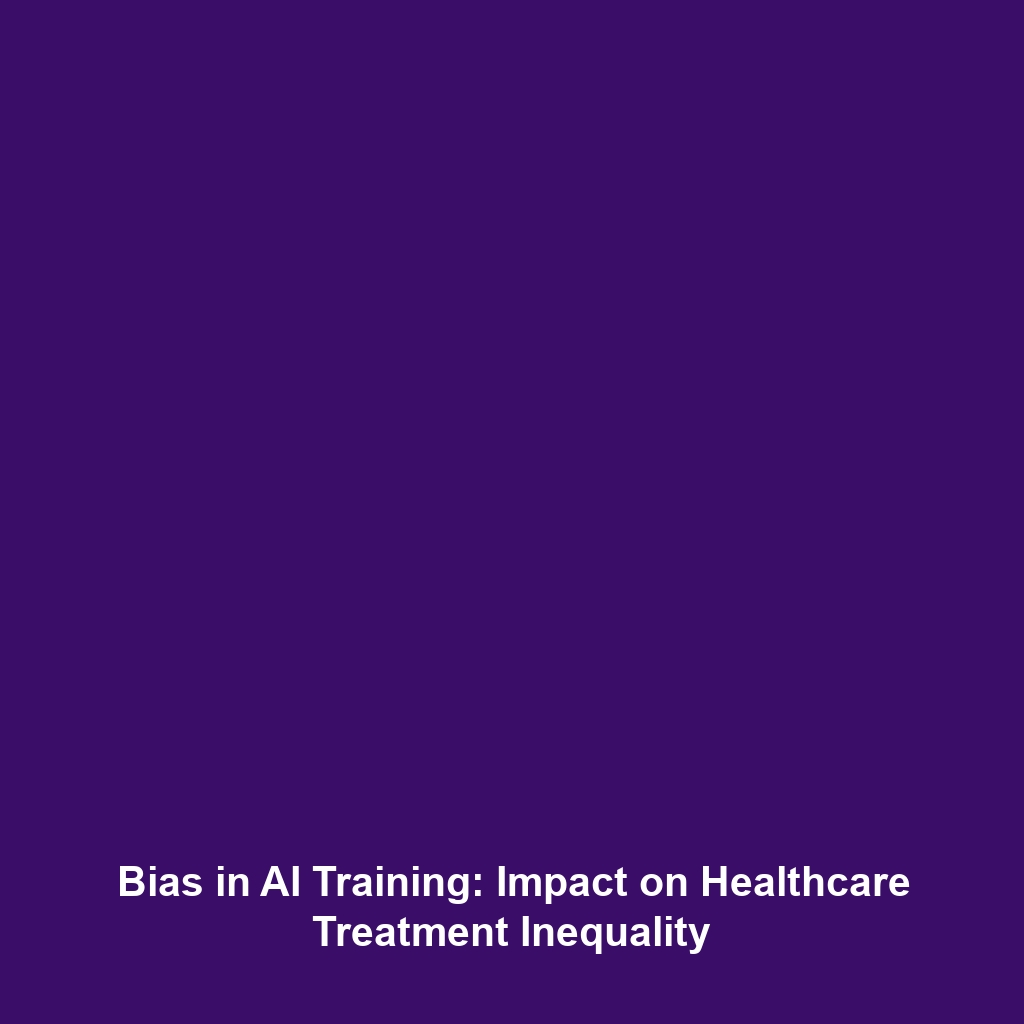How Biased Training Data Can Lead to Unequal Treatment Recommendations for Different Demographic Groups
The integration of artificial intelligence (AI) in healthcare has brought significant advancements in patient care and treatment efficiency. However, a critical concern has emerged regarding the impact of biased training data on treatment recommendations for various demographic groups. Biased data can lead to disparities in healthcare outcomes, potentially exacerbating existing inequalities. Understanding how these biases manifest in AI systems is essential for promoting equitable healthcare solutions.
Key Concepts
To understand the implications of biased training data in AI healthcare, it is essential to consider several key concepts:
Training Data Bias
Training data bias occurs when the dataset used to train AI models does not accurately represent the demographic diversity of the population. This lack of representation can lead to AI systems that disproportionately favor certain groups over others.
Healthcare Disparities
Healthcare disparities refer to the differences in health outcomes and access to healthcare services among different population groups. AI systems, if trained on biased data, can inadvertently perpetuate these disparities.
Trustworthiness of AI in Healthcare
The trustworthiness of AI applications in healthcare hinges on their ability to provide unbiased, accurate recommendations. Any indications of bias compromise the integrity of these systems and the trust patients place in them.
Applications and Real-World Uses
Understanding how biased training data influences treatment recommendations is crucial for practical applications of AI in healthcare. Here are key applications:
- Disease Diagnosis: AI algorithms used in diagnosing diseases may underperform for underrepresented demographic groups, leading to misdiagnoses and inappropriate treatment suggestions.
- Personalized Medicine: Treatment plans tailored by AI may not consider the genetic and environmental factors affecting different demographic groups, resulting in ineffective prescriptions.
- Resource Allocation: AI-driven tools for efficient resource allocation may favor populations present in the training data, neglecting those who are less represented.
Current Challenges
The study and application of biased training data in AI healthcare face several challenges:
- Data Representation: Ensuring diverse representation in training datasets is a significant hurdle. Limited datasets can lead to skewed results.
- Regulatory Frameworks: Lack of comprehensive guidelines and regulations can hinder improvements in AI systems, leaving biases unaddressed.
- Public Trust: Emerging finds of bias can erode public trust in AI healthcare systems, impacting their adoption and effectiveness.
Future Research and Innovations
Future innovations in addressing biased training data in AI healthcare are crucial. Areas of focus include:
- Algorithmic Fairness: Research is increasingly focused on developing AI models that prioritize fairness and inclusivity.
- Enhanced Data Collection: Innovative methods of data collection that ensure broader representation will support fairer AI training practices.
- Interdisciplinary Collaborations: Partnerships among ethicists, healthcare professionals, and AI developers will help to identify and mitigate biases more effectively.
Conclusion
The implications of biased training data on unequal treatment recommendations in AI healthcare are profound, necessitating immediate attention from researchers, policymakers, and healthcare providers. Addressing these challenges will be pivotal in mitigating healthcare disparities and ensuring equitable treatment for all demographics. For further insights, consider exploring our articles on Ethical AI in Healthcare and Future Innovations in AI Healthcare.
